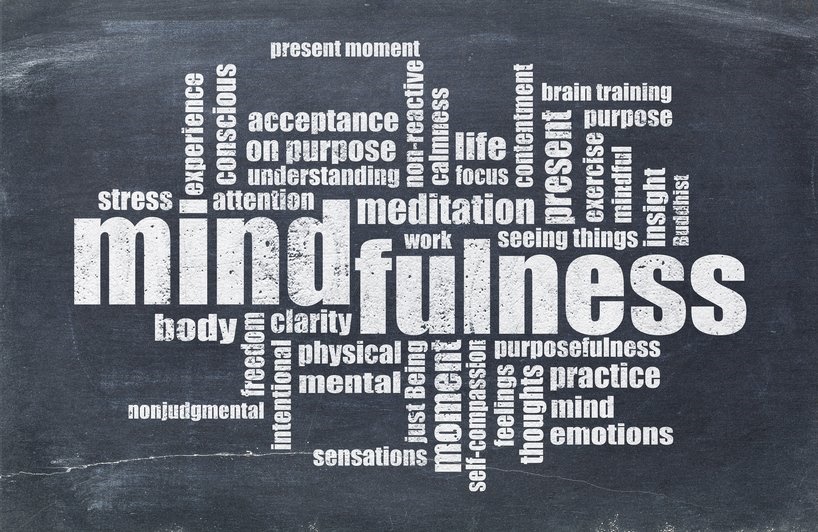Each month, we bring you “Tori’s Take” featuring a guest post by Market Street Talent’s Operations Coordinator, Tori Leavitt, as she takes a look at popular workplace concepts and trends.
I would be surprised if you hadn’t heard the word “mindfulness” recently. It started picking up steam in the later half of 2016, and hasn’t slowed down yet. A Harvard University study demonstrated that adults spend nearly 47% of their waking hours thinking about something other than what they’re currently doing, which contributes to feelings of unhappiness. Learning to practice mindfulness can help you focus on your tasks, lower your stress, and improve your overall satisfaction.
Mindfulness is a State of Mind, Literally
So what is mindfulness, exactly? In simple terms: being completely focused on the present moment. Another term you might hear used interchangeably with mindfulness is meditation. Meditation is the actual practice employed when mindfulness is your goal. It teaches the importance of paying attention to what’s happening around you rather than focusing on the past or future.
Why You Should Care
This is all well and good, but why is this important in the workplace? Shouldn’t we all be multi-tasking to the fullest extent, and focusing hard on our work? Yes and no. Studies have shown that taking short breaks creates renewed energy when we step back into our work flow. Even medical professionals are getting on board with the mindfulness doctrine, citing benefits to nearly all patients but most notably those with cardiovascular disease. Stress reduction is almost always a component of cardiovascular care, and meditation has been shown to be particularly effective. Meditation also helps reduce symptoms of anxiety and depression, both of which have high incidences in cultures where hard work is an important value.
Everyone Wants to be More Productive, Right?
We’re living in a time where productivity is king and free time is scarce. It can seem counter-intuitive to set aside time to “do nothing.” In actuality, making a conscious effort to take a break and take back your focus is often the best thing you can to increase your productivity. Meditation has been shown to lead to better decision making and clearer thinking. It teaches your brain to take a step back from situations that might cause reactivity, and re-routes you to a more proactive approach.
It Doesn’t Have to be Complicated
No, you don’t have to start lugging a yoga mat or a meditation cushion to the office (although, go ahead if that’s something you want to do and can get away with!). Incorporating mindfulness into your work routine can be super simple. Set aside five minutes during the day to step away from your desk – even pulling your chair backwards a few inches if you can’t leave the immediate area – and close your eyes. Take a few deep breaths, clearing your mind of your to-do list and other concerns. Sit quietly and try not to let your mind wander. Then, return to your workday. You’ll benefit from a sense of clarity, and so will your projects.
Mindfulness is a Process
A common complaint about practicing mindfulness is that it can feel tedious at first. In the age of productivity optimization, most of us aren’t used to focusing on being quiet. All the multi-tasking we do in a given day can make us feel like we’re wasting time sitting still, even if it’s only for a few minutes. Remember that like any habit, meditation will take time to become a comfortable part of your routine. If you’re willing to spend the time getting used to taking a different approach to your day, the benefits to your physical and emotional health will be worth the effort.
Have you given mindfulness a try? Any suggestions for those who are new to the idea? Let us know on Facebook or Twitter.
Sources: Cho, Jeena. “Why Cardiologists Are Prescribing Mindfulness For Heart Health.” Forbes. Forbes Magazine, 07 Feb. 2017. Web. 09 Feb. 2017.
Killingsworth, Matthew A. and Daniel T. Gilbert. “Wandering Mind Not a Happy Mind.” Harvard Gazette. N.p., n.d. Web. 09 Feb. 2017.
